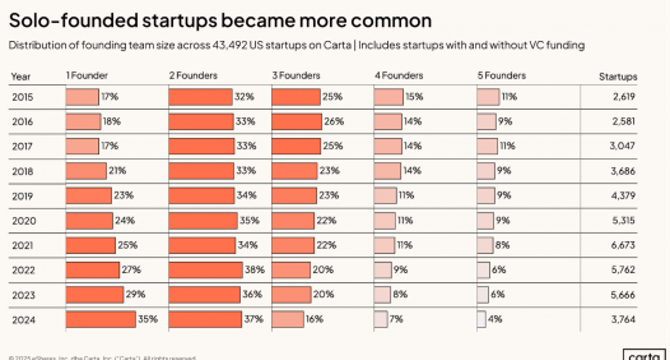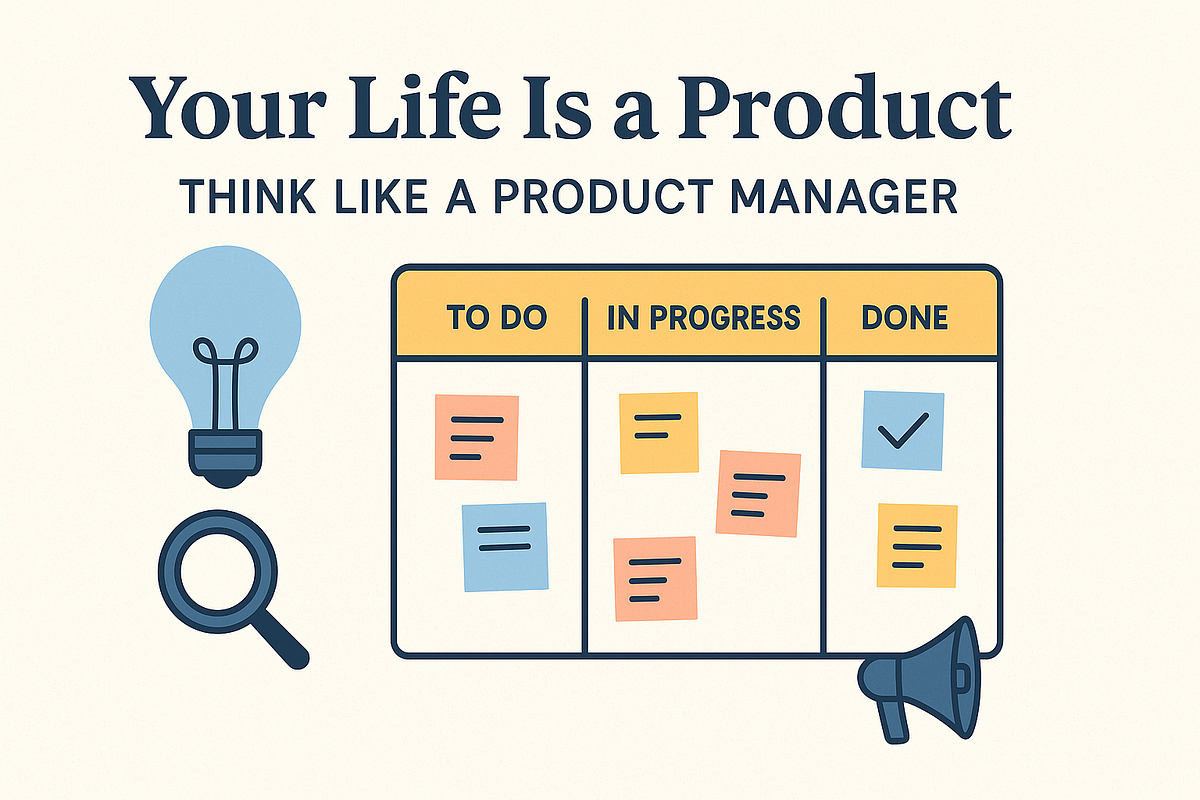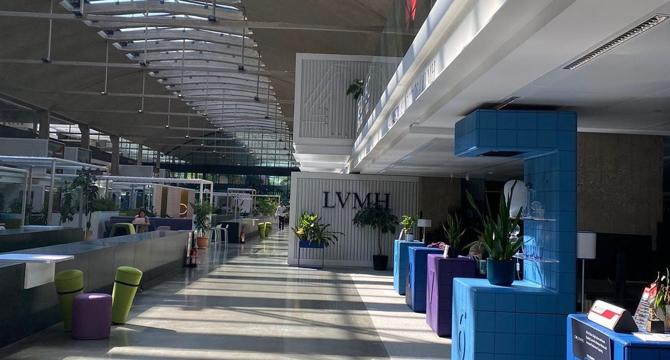Startup News
Medium
464

Image Credit: Medium
You don’t need more features. You need better logs.
- Product managers sometimes treat engineers as mere extensions of their roadmap spreadsheet due to market pressure and constant demands for updates.
- Collisions between the push for rapid development and a team lacking the courage to address being 'flying blind' can lead to operational chaos.
- Stopping development often feels like a failure to many product managers as it implies less data, iteration, and fewer chances to showcase progress.
- The problem is not about good or bad product managers but rather the overlooking of the critical aspects like logs, metrics, and observability by some brilliant PMs.
Read Full Article
21 Likes
Startupreporter
207

Image Credit: Startupreporter
Revolutionizing Healthcare: The Dawn of Rapid Access
- India's healthcare sector faces delays in critical services despite the rapid delivery expectations set by quick commerce.
- Ambulances often take precious time to reach patients, affecting outcomes in life-threatening situations like cardiac arrest or stroke.
- Booking appointments with specialists and waiting at crowded clinics prove to be physically and emotionally draining for patients.
- Basic health testing involving commutes, fasting, and result waits highlights the lack of standardization and digital integration.
- Medicine delivery can take 2 to 24 hours, posing dangers for those in immediate need.
- The healthcare system's fragmentation leaves patients navigating disconnected services with inefficiencies.
- The absence of a unified platform to connect ambulances, doctors, labs, and pharmacies hampers swift and integrated healthcare access.
- Regulatory caution, infrastructural bottlenecks, and outdated logistical models stagnate innovation in the healthcare sector.
- Innovative healthcare companies are emerging to revolutionize patient access, aiming for swift and accurate service delivery.
- A pioneering healthcare company in Delhi is already delivering medicines within 10 minutes, showcasing the possibility of speedy healthcare delivery.
- Future healthcare solutions may enable instant doctor consultations, convenient lab test bookings with at-home sample collection, and rapid ambulance services.
- The focus is on optimizing time, conserving energy, and ultimately saving lives by ensuring urgent care is truly urgent in healthcare delivery.
- These advancements work towards a future where quick healthcare services are comparable to instant goods delivery in other sectors.
Read Full Article
12 Likes
TechCrunch
392

Image Credit: TechCrunch
Last day to save on your TechCrunch All Stage pass — prices go up tonight
- Last day to save on TechCrunch All Stage pass - prices go up tonight, June 22, at 11:59 p.m. PT.
- TechCrunch All Stage event happening on July 15 in Boston, bringing together founders, investors, and operators for a day of strategy and startup momentum.
- Sessions at TC All Stage focus on action, providing insights into fundraising, scaling, and leadership in today's market.
- Speakers shaping the event include Ellen Chisa, Charles Hudson, Cathy Gao, Tiffany Luck, Jennifer Neundorfer, Mo Jomaa, Chris Gardner, Nikki Parker, and more.
- Opportunities to connect at roundtables, pitch competitions, and Side Events hosted in Boston.
- Join TC All Stage to be part of a tech-forward community and save up to $210 if you secure your pass before midnight.
- TechCrunch Early Stage 2024 event visuals at SoWa Power Station including breakout sessions and Fidelity Investments exhibition.
Read Full Article
23 Likes
ISN
387

Image Credit: ISN
Indian startups raised over $161 million from June 16 to June 21, 2025; Aspora tops the list
- Indian startups raised over $161 million between June 16 and June 21, 2025, with Aspora leading the pack.
- As many as 16 startups from sectors like NBFC, Fintech, Logistics, and AI received funding.
- Last week, Indian startups raised over $390 million, with Groww securing $200 million.
- High-value deals during the week included Aspora raising $53 million and Spinny securing $30 million.
- Other notable fundings were by Mahaveer Finance ($23M), CLR Facility Services ($15M), and RenewBuy ($10M).
- Emerging startups like Nuvie, Darwix AI, Saswat Finance, illumine, Oben Electric, Techfino, Seven, and Okinawa also secured considerable funding.
- Xportel and One Hand Clap Media did not disclose their funding amounts.
- InCred Money is set to acquire Stocko, Krutrim acquired BharatSahAIyak, and Razorpay acquired POP for $30 million.
Read Full Article
23 Likes
Medium
17

Image Credit: Medium
The Lean Startup Is No Longer Enough
- The Lean Startup philosophy emerged as a way to reduce waste and test assumptions early in a resource-constrained environment.
- With the rise of generative AI, tasks that once took weeks can now be completed in a fraction of the time.
- AI tools like GitHub Copilot and Vercel AI SDKs are enabling faster deployment and documentation of code.
- A significant portion of startup codebases are now generated by AI, shifting the focus from manual coding to strategic decision-making.
- The cost of iteration in software development is decreasing dramatically due to AI-driven efficiencies.
- The landscape of software development has evolved, emphasizing strategy and distribution over pure development speed.
- In an AI-native world, the software development cycle prioritizes fast testing, real user signals measurement, and rapid iteration.
- The internet has transitioned from open discovery platforms like Hacker News to gated ecosystems within social media and app stores.
- While Lean and Agile principles remain important, they are no longer sufficient strategies for modern software development and market entry.
- The rise of solo founder startups may be attributed to AI tools reducing the minimum viable team size and accelerating tasks previously requiring multiple roles.
Read Full Article
1 Like
Medium
171
Image Credit: Medium
AI Code Assistant: Every Developer’s Secret Weapon in 2025
- AI code assistants, utilizing artificial intelligence, enhance developer workflows by suggesting code, generating functions, writing tests, and more.
- These assistants utilize pre-trained machine learning models and are integrated into popular code editors like VS Code, offering speed and flow improvements.
- Popular AI tools used in 2025 include GitHub Copilot, Tabnine, Cursor, Replit Ghostwriter & Agent, and Sourcegraph Cody for various coding tasks.
- Tools like Copilot Chat, Replit Ghostwriter & Agent, and Sourcegraph Cody are noted for their capabilities in code suggestions, privacy-focused completions, and understanding context.
- AI tools not only suggest code snippets but also automate entire workflows, including bug fixing, refactoring, and app scaffolding.
- Organizations like JP Morgan and Stack Overflow report efficiency gains ranging from 20% to 30% using AI tools, though some claim only 6% of teams achieve significant benefits.
- Concerns regarding AI tools include code quality and security risks, with best practices emphasizing code review, selective tool usage, and training prompt use.
- Developers are advised to define their requirements, consider IDE compatibility, explore privacy controls, pilot free versions, and measure team performance when using AI tools.
- AI assistants are evolving to voice-driven coding, CI/CD integration, advanced agents like Amazon's Kiro, and deeper collaboration to provide relevant suggestions based on team coding patterns.
- In 2025, AI code assistants are becoming standard in developer toolkits, offering productivity gains through task automation, along with the need for human oversight and structured workflows for optimal tool utilization.
Read Full Article
10 Likes
Medium
110

Image Credit: Medium
Roadmaps, Backlogs & Broken Coffee Machines: Product Thinking in Real Life
- Product management is about solving problems thoughtfully and strategically, not randomly.
- Product managers (PMs) ask insightful questions and define what's worth solving by digging deep.
- PMs translate chaos into clarity by gathering context and not just feature requests.
- PMs validate ideas before execution.
- A roadmap isn't just a wish list but a strategic guide that involves making tough choices.
- In personal life, prioritization and life triage play a vital role similar to PM decisions.
- Failure is seen as feedback, and the concept of Minimum Viable Product (MVP) is emphasized.
- Iteration thinking is key - starting small, testing, and learning fast.
- Product management involves a significant amount of politics and people alignment.
- Aligning people, negotiating, and translating between teams are crucial tasks for PMs.
- Embracing changing plans and shipping despite imperfections is part of being a PM.
- Life parallels product management in terms of making daily decisions and building a better self.
Read Full Article
6 Likes
Medium
92

Image Credit: Medium
The Right Person. The Right Role. The Right Tool.
- The article criticizes the practice of firing employees due to poor hiring decisions instead of acknowledging the failure in leadership and decision-making.
- It emphasizes the importance of understanding company needs and defining roles correctly during the hiring process.
- The author highlights the difference between hiring a generalist at an early stage versus a specialist during scaling.
- It stresses the significance of matching skills to the job requirements and setting clear expectations for outcomes.
- The article challenges leaders to reflect on whether they clearly defined what a new hire should be fit for.
- It points out the importance of proper preparation and understanding roles to avoid frequent layoffs.
- Effective leaders focus on learning from exits, improving role clarity, and slowing down the hiring process to find the right fit.
- The author calls out leaders who use layoffs as content for visibility and urges for responsible hiring practices.
- The article encourages leaders to prioritize finding the right person for the right role with the right tools at the right time.
- It distinguishes between real leadership based on preparation and reactive management driven by indecision.
- Leaders are advised to pause and reflect before making firing decisions to ensure accountability and proper leadership.
- Tags: #leadership #hiring #startups #management #entrepreneurship #strategy #culture #leadershipdevelopment #leadershiplessons #founderthoughts #productmanagement #founder #teambuilding #accountability
Read Full Article
5 Likes
Economic Times
344

Image Credit: Economic Times
Mira Murati’s Thinking Machines Lab raises $2 billion seed round at $10 billion valuation
- Thinking Machines Lab, an AI startup founded by Mira Murati, raised $2 billion in a seed round, valuing the company at $10 billion.
- The funding round was led by Andreessen Horowitz with participation from Conviction Partners.
- The company focuses on developing a next-generation AI platform for human-AI collaboration.
- Founded in February 2025, Thinking Machines Lab has hired former OpenAI researchers and employees from other tech companies.
- John Schulman, co-founder of OpenAI, has joined Thinking Machines Lab as chief scientist.
- Barret Zoph, a key hire, previously worked at OpenAI.
- Thinking Machines Lab is part of a trend of AI model companies founded by ex-OpenAI executives.
- Other companies in this space include Anthropic and Safe Superintelligence Inc.
- The exodus of talent from OpenAI has led to the emergence of competing AI labs attracting significant investments.
- Investors are eager to support the development of new general-purpose AI models.
Read Full Article
19 Likes
Insider
97

Image Credit: Insider
'We're not trying to be Silicon Valley': Inside Station F, where Paris is incubating the next tech and AI juggernauts
- Paris's Station F, a converted train station, is a prolific incubator for tech startups, doubling down on the AI boom and attracting interest, particularly from US startups.
- Inspired by Silicon Valley but not aiming to replicate it, Station F is drawing international founders, especially due to political factors like the US election and Brexit.
- The campus has become a hub for global talent seeking opportunities in France's tech ecosystem, with a diverse community representing over 70 nationalities.
- Despite the US leading in VC funding, Paris is catching up as a tech hub, with an increasing enterprise value of startups and a growing focus on climate tech.
- Startups at Station F benefit from resources, mentorship, and workshops, with the incubator taking a more favorable 1% equity compared to Y Combinator's 6%.
- The incubator facilitates collaboration among innovators, attracting notable figures like the GitHub CEO and becoming a hotbed for AI startups, with significant funding and investor interest.
- High-profile investors back French AI startups originating from Station F, with the incubator actively participating in regulatory discussions to support the tech ecosystem.
- Station F fosters a collegial culture of collaboration over competition, with startups benefiting from close proximity interactions and shared resources.
- The incubator's success has led to international initiatives and plans to expand connections across Europe, leveraging its Parisian foundation.
Read Full Article
5 Likes
Inc42
30

Image Credit: Inc42
Inside India’s High-Stakes Bet To Build Its Own GPT
- India is making a high-stakes bet to build its own Generative Pre-trained Transformer (GPT) models with collaborative effort from the government and four AI startups - Sarvam AI, Soket AI, Gnani.AI, and Gan.AI.
- The debate around developing India's own foundational large language models (LLMs) shifted after the emergence of DeepSeek-R1, a foundational model developed by a Chinese company.
- The Indian government announced plans to build a country-specific LLM as part of the IndiaAI Mission, selecting startups like Soket AI, Gnani.ai, and Gan.AI for the task.
- Soket AI is working on a 120 billion parameter open-source text model, Gnani.ai on a 16 billion parameter Voice AI foundational model, and Gan.AI on a 70 billion parameter multilingual foundation model.
- Sarvam AI, the first startup selected by India AI mission, is developing various model variants, including Sarvam-Large, Sarvam-Small, and Sarvam-Edge for different applications.
- The government's collaboration with AI startups aims to make GPUs more accessible and reduce the costs of building LLMs, addressing the funding challenges faced by startups.
- The increase in compute capacity and GPU support provided by the government is crucial for lowering development costs and attracting private funding into AI projects in India.
- While India is late in the AI race, focusing on developing smaller, vertical models and shaping fundamental technologies tailored for Indian needs can pave the way for future innovation in the AI sector.
- The aim of India's Sovereign AI efforts is not just owning infrastructure but shaping intelligence that caters to various sectors like agriculture, healthcare, and governance in the country's context.
- Despite challenges like GPU supply shortages and high training costs, India's aspiration to build its own AI models signifies a significant step towards creating AI that aligns with Indian realities.
Read Full Article
1 Like
Startup Pedia
74

Image Credit: Startup Pedia
33 Rejections & 18 Months of Field Testing Later, This Duo Built Mokobara, an Indian Luggage Brand That Clocked Rs 117 Cr in Revenue in FY24
- Indian travellers faced limited luggage options until Sangeet Agrawal and Navin Parwal created Mokobara, a premium travel brand focused on design and quality.
- The founders, previously from Urban Ladder, collaborated to build luggage that they personally liked, leading to the inception of Mokobara.
- Mokobara rejected 33 pitches, staying true to their vision of high-quality, design-driven luggage despite initial investor skepticism.
- The brand prioritized craft over scale, refusing investments that didn't align culturally and focusing on building obsession rather than chasing valuations.
- Mokobara's meticulous product development process involved field testing, collaboration with OEMs of top brands, and a focus on both aesthetics and functionality.
- The founders embraced timeless, identity-led design, favoring minimalist silhouettes, neutral tones, and collaborations that added layers of personality.
- Mokobara's distribution strategy blends online D2C with experiential offline retail, creating a seamless omnichannel experience for customers.
- Their marketing strategy emphasizes design-led storytelling, working with micro-influencers, and creating retail spaces that reflect the brand's identity.
- Mokobara's revenue growth, reaching ₹117 Cr in FY24, stemmed from high repeat purchases, low return rates, and an organic traction approach over paid marketing.
- Despite facing controversies like the Diljit Dosanjh ad and 'copying' trolls, Mokobara responded creatively, strengthening customer loyalty and driving record sales.
Read Full Article
4 Likes
Inc42
12k

Image Credit: Inc42
Swiggy Emerges Biggest Winner In A Mixed Week For New-Age Tech Stocks, FirstCry Slumps
- In a mixed week for the Indian equity market, new-age tech stocks saw varied performances with Swiggy emerging as the biggest winner.
- The market cap of new-age tech companies increased to $88.16 Bn, despite a majority ending the week in the red.
- Swiggy's shares rose by 10.09%, while FirstCry slumped by 10.18% to end the week.
- Other gainers included Go Digit, Ather Energy, Nykaa, PB Fintech, and IndiaMART.
- Among the losers were companies like Ola Electric, MobiKwik, and DroneAcharya.
- Notable IPO filings included Shiprocket, Groww, PhysicsWallah, and boAt, with Ather Energy being the only one to go public so far this year.
- Benchmark indices Sensex and Nifty 50 ended the week in the green, rising 1.6% each.
- Market sentiment was positive due to improving macroeconomic indicators, FII buying, and RBI's relaxation of project financing norms.
- Swiggy reported a significant rise in market cap and launched a new concierge service, 'Crew'.
- FirstCry faced insolvency troubles as shareholders filed a petition against its subsidiary, GlobalBees Brands.
- Overall, the week saw a mix of gains and losses for new-age tech stocks amid positive market trends.
Read Full Article
14 Likes
Dev
716

Image Credit: Dev
A Sunday Reflection: Coding Apps & New Opportunities
- The author reflects on the joy of creating mobile apps on a sunny Sunday morning.
- Building user-friendly applications from ideas, whether through native Android development or cross-platform solutions like Flutter, is inspiring.
- The author submitted their latest project, Pleyera, for review on the Play Store and looks forward to sharing it once it's live.
- They express excitement about their mobile development journey and are actively seeking remote collaboration opportunities, particularly with startups as an Android developer.
- The author invites those with innovative projects or app ideas needing a skilled developer to connect via LinkedIn or email for collaboration.
Read Full Article
23 Likes
Medium
489

Image Credit: Medium
10 Untapped Micro-SaaS Niches With Massive Demand and Minimal Competition (2025 Edition)
- Micro‑SaaS continues to excel in 2025 due to low overhead, high margins, focused value, and limited competition.
- Top 10 micro‑SaaS niches with high value and low competition are identified, including real estate tools, podcast analytics, AI‑powered solutions, and more.
- Validation and rapid launch strategies are crucial for success, involving early demand validation, narrow focus, smart pricing, community engagement, and gradual automation.
- The key to success lies in targeting overlooked niches like legal‑doc automation, podcast analytics, and specialty‑coffee shop systems, offering solutions to specific industry pain points.
Read Full Article
25 Likes
For uninterrupted reading, download the app